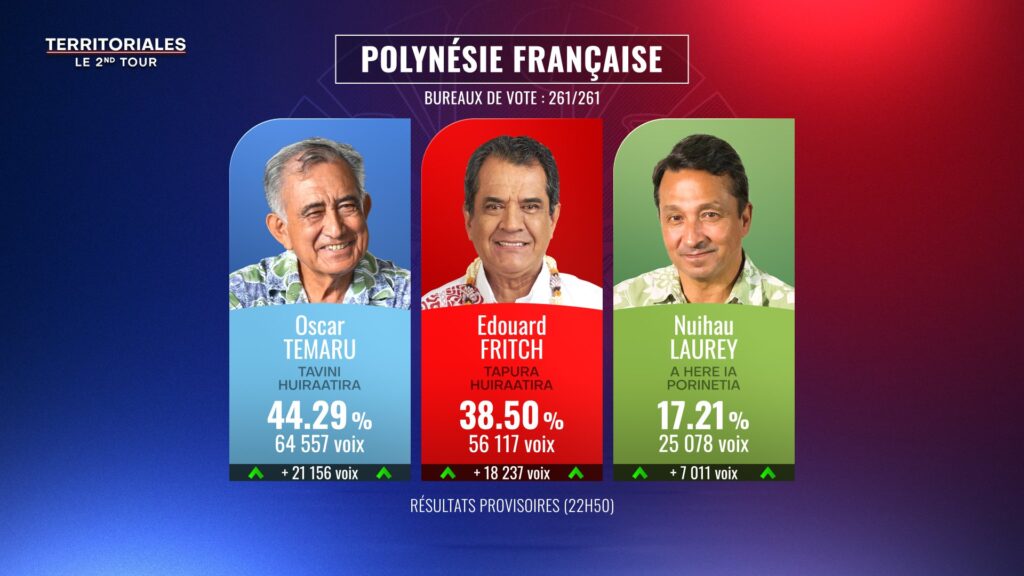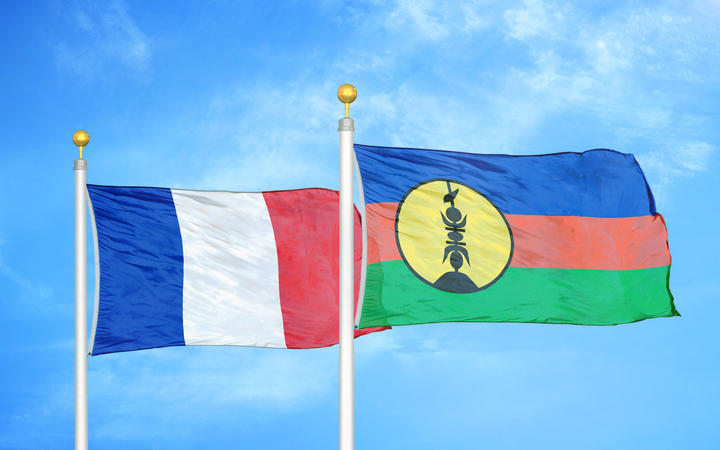1. Probability of New Caledonia Gaining Statehood
- Medium-High Probability (50–65%) in the medium term (5–10 years).
- After the violent unrest in May–June 2024, the long-standing Kanak independence movement regained momentum, especially among younger, marginalized populations.
- France postponed electoral reforms and constitutional changes under pressure, signaling erosion of political will to maintain strong colonial hold.
Key drivers:
- A growing generational divide and Kanak mobilization.
- Ongoing disputes over electoral rights (French-born vs. native New Caledonians).
- Diminishing strategic returns for France in holding on to New Caledonia.
2. Why Might France Let Go? Context of Global Decline
a) Erosion of French Influence in Africa
- France has been forced out of Mali, Burkina Faso, and Niger, largely due to:
- Russian (Wagner/SVR) encroachment.
- Anti-French sentiment and failure of counterterrorism efforts (Operation Barkhane).
- As its African sphere collapses, Paris may prioritize retrenchment—focusing on domestic challenges and core European/NATO affairs.
b) Strategic Fatigue & Diplomatic Realism
- Maintaining New Caledonia is economically costly and diplomatically toxic.
- Granting sovereignty under negotiated conditions could preserve French influence in a post-colonial format (via a Compact of Free Association, like in Pacific Micronesia cases).
- . France’s Global Retrenchment Strategy
Loss of influence in Africa — especially in Mali, Niger, and Burkina Faso, where pro-Russian juntas have expelled French troops and institutions — has exposed the limits of French power projection.
The costs of overseas colonial governance are rising at a time when France’s economy and military are under strain.
Macron’s government is looking to prioritize core strategic zones (Europe, Middle East, NATO), and de-prioritize contentious post-colonial territories.
→ New Caledonia is no longer a geopolitical asset France can justify holding at all costs.
🧨 2. Internal Crisis in New Caledonia
After the 2021 referendum, boycotted by the Kanak independence movement, the political legitimacy of French rule in New Caledonia has been severely damaged.
May–June 2024 unrest and violent clashes — triggered by a constitutional reform that would expand voting rights to non-Kanak residents — showed that Paris can no longer maintain stability without risking escalation.
The Nouméa Accord has expired, and no new legal-political framework exists. France is walking a constitutional tightrope with no mandate for permanent control.
→ Paris risks being viewed as a colonial occupier unless it offers a path to sovereignty.
🌐 3. Pressure from International Institutions
New Caledonia remains on the UN list of non-self-governing territories. France is regularly criticized in international fora for delaying decolonization.
Western allies (especially Australia and New Zealand) are uncomfortable with French actions that could destabilize the Pacific region.
Macron wants to preserve France’s international image as a democratic and progressive power — granting self-determination helps that narrative.
→ Giving sovereignty now reduces diplomatic cost and buys France moral legitimacy.
🗳️ 4. Kanak Mobilization and Demographics
The Kanak population (Indigenous Melanesians) has a strong identity and sees sovereignty as part of historical justice.
Demographic shifts due to French migration to the island are seen as attempts to dilute the Kanak vote, making tensions unavoidable.
There is a fear of long-term radicalization, including potential militancy, if France continues to suppress calls for independence.
→ France may grant sovereignty to prevent a second “Algeria scenario” with years of insurgency.
5. Fear of Chinese Influence but No Tools to Compete
France knows China may step in after a withdrawal, but it lacks the long-term leverage or economic package to prevent it.
Rather than lose New Caledonia in a hostile or chaotic way (which China could exploit), France may prefer a negotiated, phased exit that preserves military rights, mining contracts, or special status.
→ Better to retreat with control than lose everything in revolt or geopolitical vacuum.
Conclusion: Why Now?
France is not ideologically eager to give up New Caledonia — but circumstances have forced its hand:
Global overstretch
Local unrest,
Legitimacy crisis,
International scrutiny,
Fear of insurgency
Limited tools to compete with China.
All these pressures have converged in 2024–2025, making this the most probable moment since the 1980s that France will either negotiate autonomy or support a gradual process toward full independence.
Let me know if you’d like this in a policy brief format, a timeline, or visual materials.
Y
France’s growing openness to granting sovereignty to New Caledonia must be seen through the lens of a strategic global retreat, driven by loss of influence in the Sahel, overstretched resources, and a recalibration of its foreign policy priorities. Here’s a clear breakdown of why France is increasingly ready to “let go” of New Caledonia in this context:
🇫🇷 1. Parallel Crises: Sahel Collapse and Pacific Fragility
France’s expulsion from the Sahel — Mali (2022), Burkina Faso (2022), Niger (2023) — dealt a major blow to its postcolonial power architecture in Africa. These regimes replaced French military and diplomatic presence with Russian-backed influence, largely through the Wagner Group and GRU-aligned figures.
At the same time:
New Caledonia exploded into riots in mid-2024 due to Paris’s attempt to alter voting laws in favor of pro-French settlers.
France had to deploy security forces, much like in African flashpoints, to reassert control—raising uncomfortable colonial-era comparisons.
Conclusion: France can no longer afford to simultaneously manage decolonization crises in Africa and the Pacific.
2. Strategic Retrenchment Doctrine
With its global influence shrinking, France is now prioritizing:
Europe and NATO-related commitments (e.g., Eastern Europe, Ukraine).
Stability at home, including economic challenges and domestic unrest.
Holding on to remote, costly territories like New Caledonia offers diminishing returns, especially when these territories:
Demand ever-greater military and financial investment.
No longer want French rule.
Risk becoming liabilities in the global South.
Conclusion: As in the Sahel, France recognizes it must avoid overextending itself, and may opt for a dignified exitrather than risk violent collapse.
🌐 3. Loss of Narrative Control
In the Sahel, France was accused of neocolonialism, which fueled popular revolts.
In New Caledonia:
Kanak activists and international observers increasingly frame French presence as colonial and undemocratic.
The boycott of the 2021 referendum, the unrest of 2024, and the UN decolonization list all undermine France’s narrative of benevolent governance.
France does not want another PR disaster or to be compared to the imperial past it claims to have moved beyond.
4. Avoiding Another Algeria Scenario
France learned hard lessons from Algeria’s war for independence in the 1950s–60s:
A refusal to grant self-determination can spiral into protracted armed conflict, political polarization at home, and diplomatic isolation.
New Caledonia already shows early signs of radicalization, with youth-led uprisings and Kanak militias forming networks.
Conclusion: Granting sovereignty (under a negotiated framework) could contain unrest and preserve influence in softer forms (economic, cultural, security cooperation).
5. Limited Tools to Contain Chinese Influence
As in the Sahel, China (and Russia) are ready to fill the vacuum left by France:
In Africa, Russia stepped in with weapons, mercenaries, and propaganda.
In the Pacific, China offers aid, investment, and infrastructure (under Belt and Road), and is courting Melanesian nations like Fiji, Solomon Islands, Vanuatu.
France cannot afford another zero-sum loss like in Niger or Mali. By negotiating sovereignty, it can:
Retain resource contracts (e.g., nickel).
Possibly retain military rights (like U.S. base agreements with Micronesian states).
Maintain soft power through language, culture, and aid.
France’s declining control in the Sahel serves as a warning: clinging to postcolonial possessions in the face of local opposition and geopolitical competition leads to failure.
By offering sovereignty to New Caledonia under a phased or negotiated plan, France may:
Avoid another Africa-style ejection.
Rebrand itself as a modern democratic power.
Contain Chinese encroachment through managed withdrawal rather than chaotic collapse.
Let me know if you’d like a one-page policy memo or infographic summarizing this argument.


More on this story: France risks to lose New Caledonia to China amid ‘no’ referendum results
c) Macron’s Foreign Policy Shift
- Macron has shown interest in post-colonial recalibration, preferring partnerships over hard control.
- Rising unrest undermines the image of France as a stabilizing Indo-Pacific power—contradicting Macron’s push for a global role.
3. China’s Strategic Opportunity
- China has long courted Pacific Island nations (Fiji, Solomon Islands, Vanuatu) through:
- Infrastructure aid (Belt and Road).
- Debt diplomacy.
- Military cooperation (e.g., security pacts in Solomon Islands).
New Caledonia’s resources (especially nickel) are vital for green tech—of great interest to China.
Probability of Increased Chinese Influence: High (70–80%)
- If France retreats without firm post-sovereignty mechanisms, China will likely fill the vacuum.
- China could:
- Secure long-term mining concessions.
- Build port or logistics infrastructure.
- Push for security or police training agreements.
4. Geopolitical and Regional Consequences
For the Pacific:
- Weakening of Western presence may destabilize regional balance.
- Australia and the U.S. would view Chinese entry into New Caledonia as a direct threat to Indo-Pacific security.
For France:
- Loss of New Caledonia would:
- Severely damage France’s Indo-Pacific presence.
- Undermine its claim to be a global power.
- Create a precedent for other overseas territories (e.g., French Polynesia, Réunion) to push for autonomy.
For China:
- Gains a new geopolitical outpost close to Australia and New Zealand.
- Strengthens resource security and influence in the Pacific Islands Forum.
- Symbolic win over a Western power without military confrontation.
Conclusion
The likelihood of New Caledonian independence is growing, pushed by internal pressures and France’s global recalibration under the weight of its declining African empire and strategic overstretch. If France exits without a clear containment mechanism, China is poised to benefit, reshaping the Indo-Pacific balance and challenging Australia, the U.S., and regional security structures.




